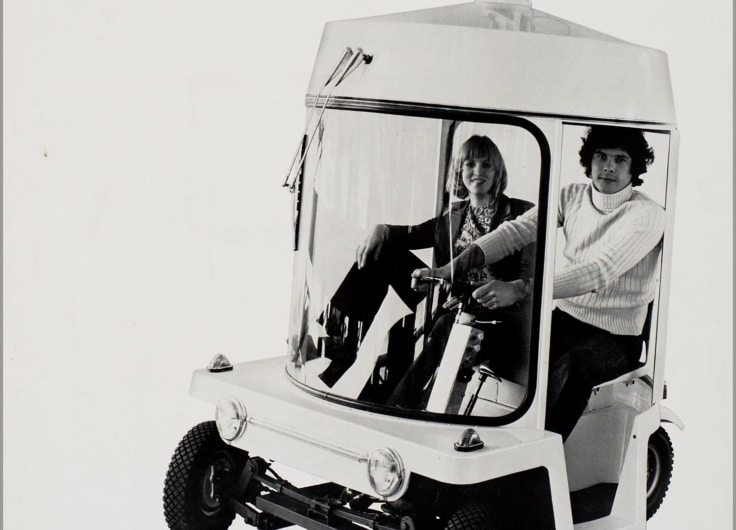When You Care to Share. The Collaborative Economy in the Low Countries
Flanders and the Netherlands are fertile ground for the collaborative economy because they are densely populated and very connected. But even if a whole range of initiatives has developed there, the definition of this master key concept is far from clear. ‘Between the societal ideal and the market, we have to find the best possible model.’
Although a very multifaceted phenomenon, for convenience, let’s call it the collaborative economy. But in Flanders and the Netherlands, it often bears its name badly. Thus, the owner who is part of the upper-middle class and who uses the powerful global Airbnb platform to rent out his property in Bruges, Brussels or Amsterdam, is often at odds with the active citizen who earns less, but who gives French lessons in exchange for repairing a leak in his bathroom.
Mobility software that allows a young mother in the neighbourhood to borrow a scooter or a cargo bike to go to the recycling centre is, here again, miles away from Lime and Dott electric scooters which, like litter, clutter paths and flowerbeds in Brussels and have, as reported by the Brussels-speaking Dutch weekly Bruzz, a lifespan of 28 days before being good for scrap.
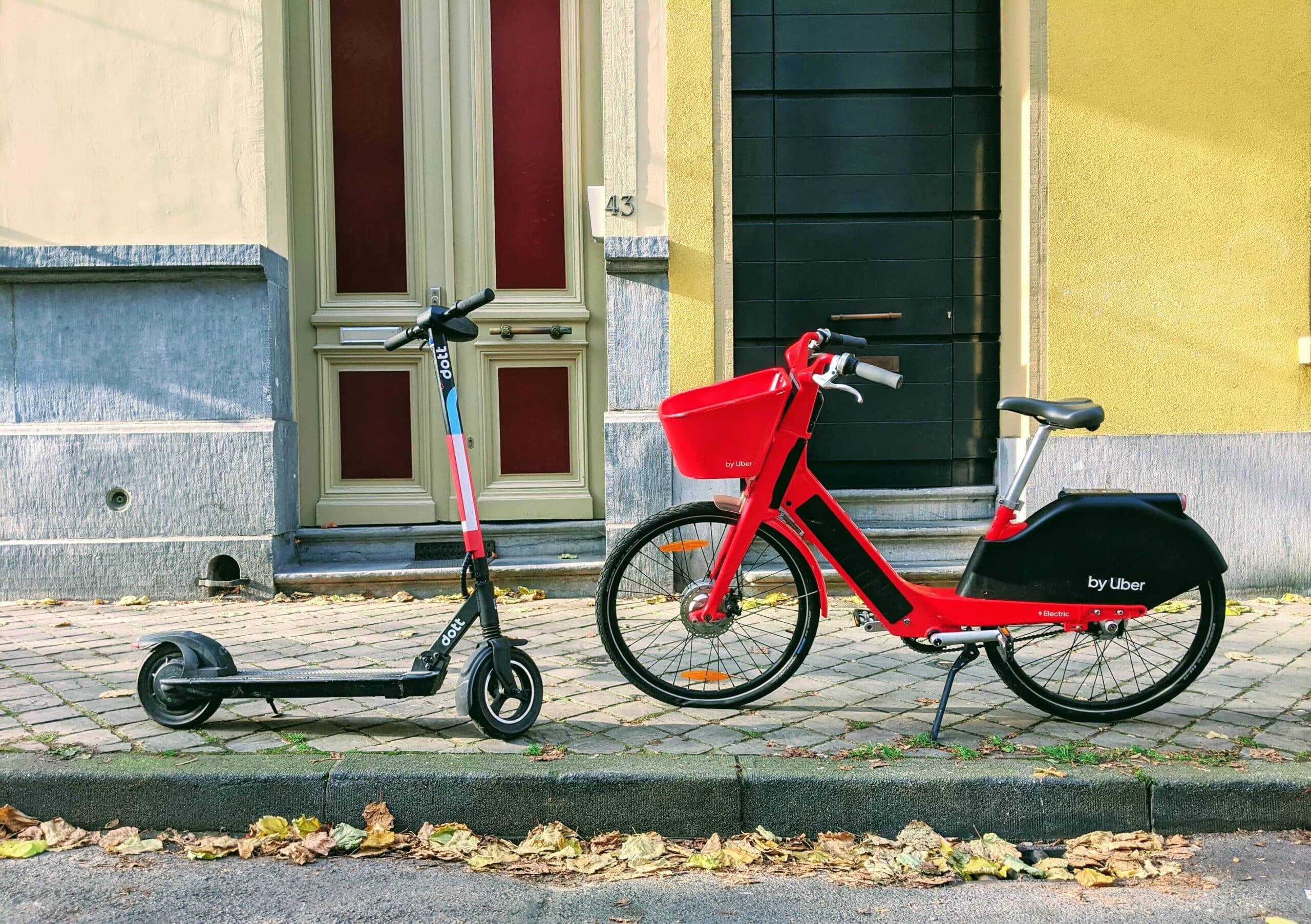
Photo by Lucian Alexe on Unsplash
Since its appearance a decade ago, the collaborative economy has rightly attracted the attention of governments, institutions, and economists. But both in Belgium and in the Netherlands, it took time to grasp the extent and nature of these new modes of exchange, with a strong digital component. Even today, the mapping is not complete, and many players are struggling to find a consensus.
‘Our legislators have clearly reflected less on the issue than in the United States, where it all started’, explains Bram Devolder (Catholic University Leuven), who in his research explores the legal framework of the collaborative economy. ‘With us, there is still no global vision. Neither in Belgium, nor in Flanders, nor in Brussels. The European Commission, for its part, prefers to pass the buck to the Member States, who look at the collaborative economy often sector by sector.’

‘In statistical terms it is still a lot of trial and error’, adds psychologist Vicky Franssen, a researcher at the Artevelde University of Applied Sciences in Ghent. Her surveys on the motivations of citizens to join the collaborative economy show that ‘many initiatives in this direction do not deserve this name, simply because there is no sharing. The platform economy touches on the collaborative economy, of course, but the two are far from overlapping each other’. A report by the National Bank of Belgium, published at the end of 2018, says nothing else: ‘It is essential to estimate the current size of the sharing economy, but whatever the urgency of the question, the answer is not obvious’. On the one hand, many different terms circulate – there is the sharing economy, as the BNB says, the collaborative economy, the digital economy, or even the peer-to-peer. On the other hand, traditional statistical and accounting methods are proving incapable of ‘adequately grasping these new forms of consumption and production’.
‘If we measure the share of the sharing economy in the total economy, we obtain a range of 0.4% to … 12% and the two figures are correct’, explains Martijn Arets, researcher and founder of the site deeleconomieinnederland.nl, in the Netherlands. ‘It all depends on the definition used.’
However, for the Dutchman, who sees his page as a forum ‘where all the information is gathered and where as much expertise as possible is shared’, things are going in the right direction. ‘In the beginning, many initiatives in the collaborative economy took place independently, so it took a while before their scope and impact on society became clear. Today, many people inside and outside of government are working on the issue, the debate is rich and intense, and our knowledge has undoubtedly increased.’
The collaborative economy is an urban and suburban phenomenon
According to Ghent specialist Michel Bauwens, the number of projects in the collaborative economy in Flanders has more than increased tenfold in ten years. Here again, the city of Ghent takes the lead in terms of study and analysis. The municipal authorities clearly want to position themselves at the forefront of citizen initiatives and promote the role of citizens as peers in fields as diverse as mobility, food, housing, etc. ’What I note in any case is that with us, the collaborative economy is an urban and suburban phenomenon’, continues Vicky Franssen. ‘Sharing has everything to do with the limited space, for example, to park your car or park your bike at the entrance of your building. Even if you are lucky enough to have a small garden, you do not necessarily have a lawnmower. So, city dwellers will, much more than people in rural areas, have to use episodic devices that other people have.’ The Netherlands and Belgium are a good breeding ground for the sharing economy because both countries are densely populated and highly urbanised’, confirms Martijn Arets. ‘In addition, the internet and smartphones are very widespread there.’
Not New
In conceptual terms, the collaborative economy has a rather trendy and new resonance, while Belgians and Dutch have shared services and tools for a long time. Take the example of carpooling: in the 1970s already, many Belgians used Taxistop, comparable to Allostop in France or the famous Mitfahrtzentrale
in Germany. Other well-known initiatives are home exchanges or, since the 1990s, couch surfing, all designed around sharing. If the phenomenon is experiencing a new boom today, it is because the financial crisis in the United States went through there in 2008.
‘For many Americans, a taxi ride suddenly became too expensive’, says Vicky Franssen. ‘This is how a company like Uber was born. Others could no longer pay for the house they had bought, and now they have gone to live in the basement to rent their beautiful homes to others. This trend is behind Airbnb.’

Photo by Andrea Davis on Unsplash
‘People have been sharing their business for hundreds of years’, continues Martijn Arets. ‘Only, it was happening on a scale so fragmented and so small that no one had noticed and that it had raised no questions. If questions arise today, it is because the market has grown, and how much! And why did the market explode? Because the access threshold suddenly found itself lower! Thanks to new media, people who were complete strangers to each other found themselves on the web. Little by little, they started sharing their goods, objects, or tools with people they did not know.’
The sharing economy concerns unused or underused goods to which consumers give themselves temporary access. Sharing goods, and therefore not doing any good: this is the definition used by Martijn Arets and his colleagues in the Department of Innovation Sciences at the University of Utrecht, one of the most renowned on the question. ‘We separate the things people have at home and the odd jobs they offer. The latter belong to what in the Netherlands we call kluseconomie, the economy of odd jobs.’
DIY is part of the sharing economy
A distinction that Vicky Franssen does not make, for whom ‘DIY is indeed part of the sharing economy’, of which she has particularly studied ‘social, non-capitalistic, and non-competitive forms’.
For the Artevelde University of Applied Sciences researcher, ‘one of the most beautiful and oldest examples of the collaborative economy are the LETS groups’, an English abbreviation for Local Exchange and Trade System. This idea, originally Canadian, has made its way around the world. In Flanders, more than 10,000 citizens are active in a LETS group, and there are more and more of them.
LETS
One of these enthusiasts is Dirk Geysen, who letse (from the new verb letsen) in the region of Leuven. LETS is a form of the local economy. Each group is distinct from the other groups and has its own virtual currency. Thus, in Mechelen, we pay with ‘moons’, in Begijnendijk (a small town in Flemish Brabant) with ‘feathers’, in Antwerp with handjes (‘small hands,’ an allusion to the etymology of the name of the city).
You provide services that you enjoy doing, and you get paid in time credit. Help people get ready for a party, manage a wake-up call service, or, in my case, offer computer or electrical skills. We coordinate supply and demand through a digital platform. An ideal LETS community is made up of about 50 families. Again, the profile of the participants is mainly urban and peri-urban. ‘The typical person who writes is part of the slightly older middle class. These are citizens who are between 40 and 60 years old and who have time because there is still a bit of need in this system. This also partly explains why young families with young children are less involved. Nevertheless: the LETS is on the rise. Many people in Flanders are also looking for a new economic story.’
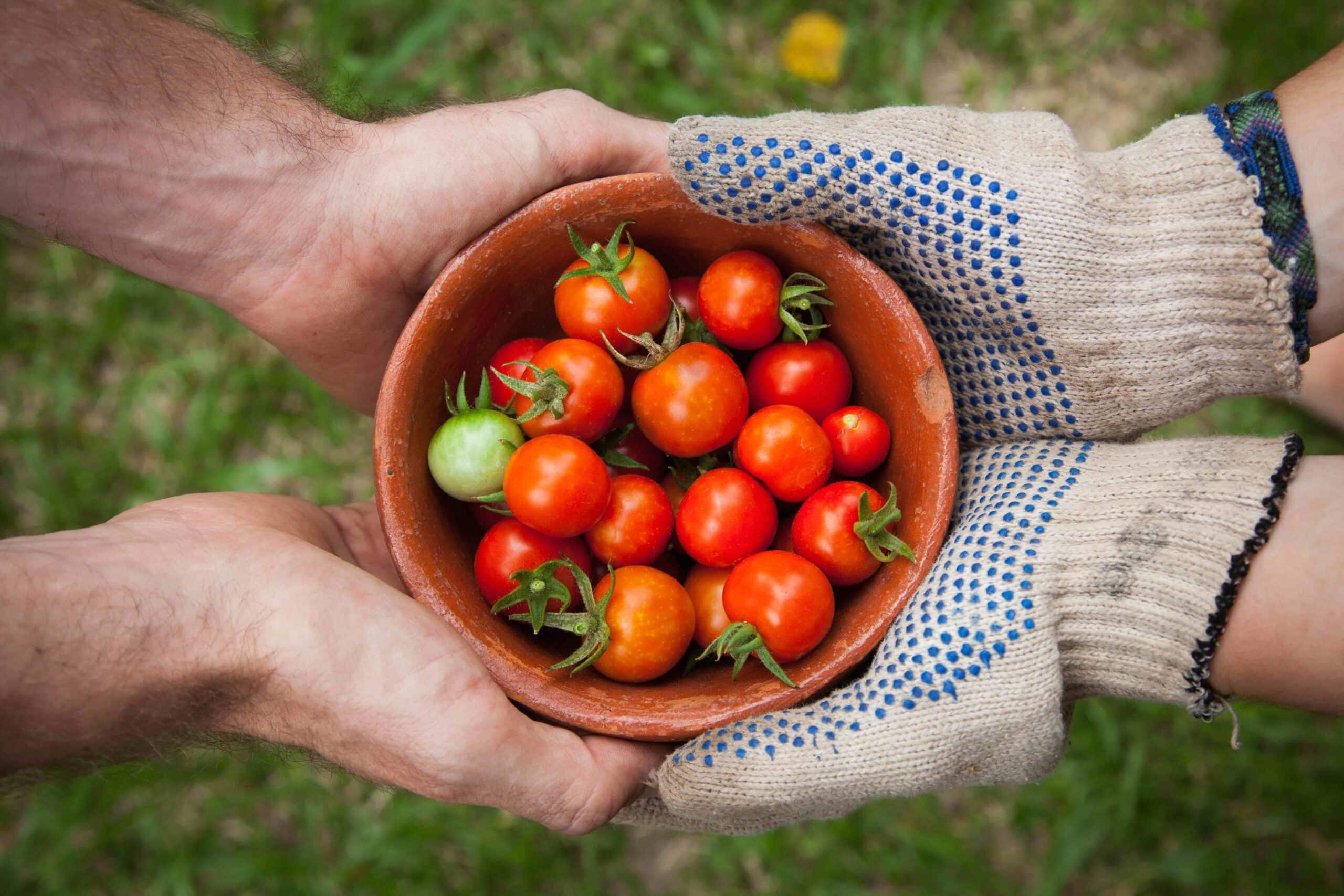
Photo by Elaine Casap on Unsplash
This is exactly the observation made by Vicky Franssen. ‘The typical person who works in the sharing economy is quite educated, but probably does not have very high income. We also see that women participate more than men, probably because they are more often in social logic. In the meantime, poor people still find it difficult to connect. Not because they don’t know how to manage a smartphone – most poor people manage it very well, precisely – but because they think they have nothing to offer. As for motivations, we see that citizens who share tools or services do so first for social or environmental reasons, and then because they are curious. Comfort or price only comes in third and fourth position.’
‘Molenbike’
In the Netherlands, as in Belgium, mobility is by far the best-performing sector of the collaborative economy. This ranges from local groups of people who share their unused cars to strong organisations operating across the country. Thus, Snappcar, a platform created in Utrecht and which already had 250,000 users in 2017, hopes to reach four times this number by 2021. The initial observation was simple: in the Netherlands, eight million cars are stopping, on average, 23 hours a day. The exploitation of this overcapacity was a gap in the market.
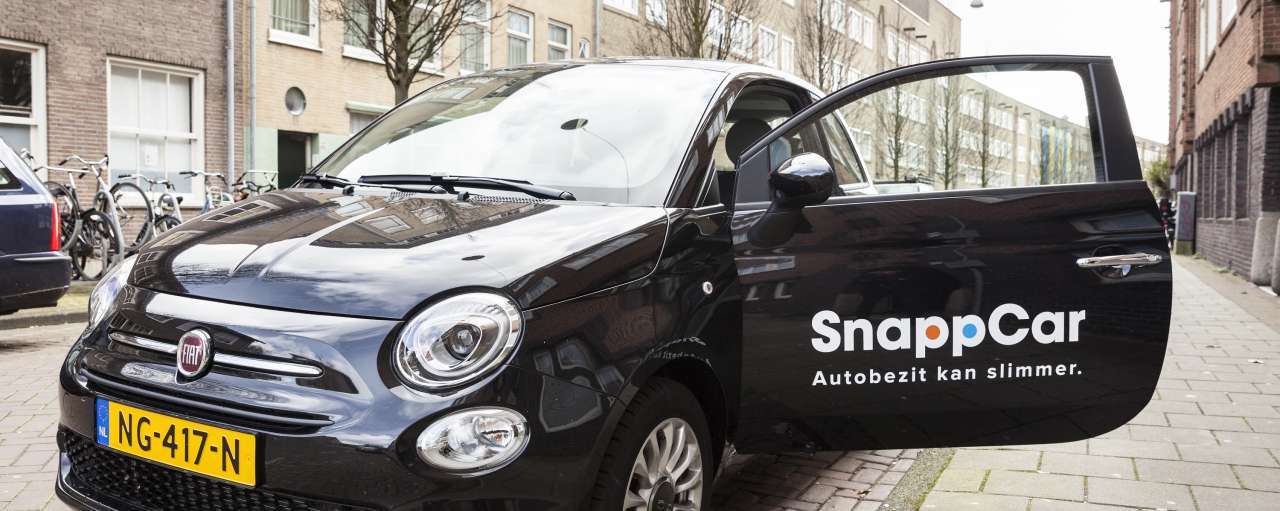
Consumers share their cars – or trade them for more environmentally-friendly modes of transportation. There too, the evolution is undeniable. In 2019, Molenbike, founded in the blink of an eye in the almost eponymous Brussels municipality Molenbeek, doubled its turnover. Fifteen bicycle couriers have joined forces in a cooperative that transports goods via a digital platform for environmentally sustainable businesses. Each courier is co-manager and has one vote. Molenbike
operates in the nineteen Brussels municipalities but also travels, if necessary, to a few municipalities on the Flemish periphery north of the capital.
Among its hundred Molenbike customers are the weekly Bruzz, the social eco-farm Nos Pilifs in the Neder-over-Heembeek district, the Brussels Beer Project craft brewery in the Dansaert district, the FÄRM
organic stores and the chain of fast food but eco-friendly The Foodmaker.
For the courier and manager-delegate Raphaël Arnould, things are clear: ‘A car in Brussels only advances at 14 km/h on average, by bike you get to 20 or even, with electric assistance, 25 km/h. The appointment with Raphaël is made in the old Tri Postal, a neglected building of the Midi station, which is currently being renovated to house Communa, an ecosystem of sociocultural and sustainable projects on a small scale that Molenbike joined. Local, sustainable, short-chain: this is the motto of the initiative.
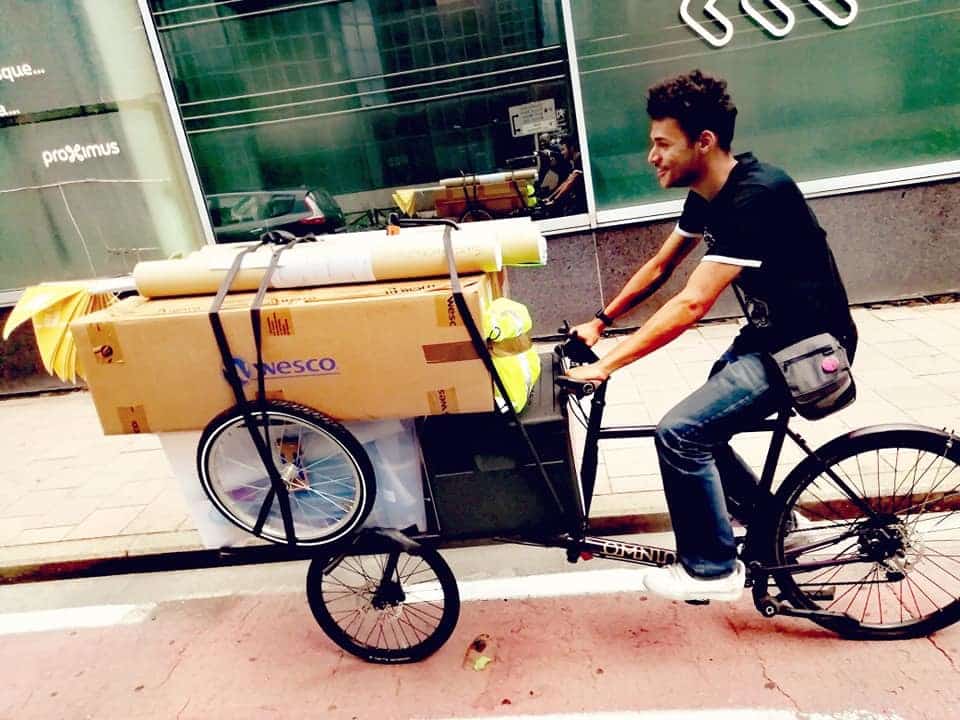 BIke messenger of Molenbike
BIke messenger of Molenbike© Molenbike
‘Transporting goods by bicycle is a very physical task. We are a little more expensive than a conventional delivery van, but our efficiency exceeds that by 20 to 30%’, he underlines. ‘We don’t set ourselves large profit margins, and the carriers don’t work for us eight hours a day. We operate with weekly contracts that cover civil liability. But Molenbike remains a commercial enterprise where taking an economic risk is a fact.’
Apart from the city of Brussels, which contributed to the development of the digital interface, Molenbike did not receive any subsidy. However, the company is part of the European logistics cooperation platform Coopcycle, itself a product of the French protest movement ‘Nuit Debout.’
Coopcycle does not only want to denounce the social abuses suffered by meal deliverers recruited by online globalised and ultra-commercial centres; the platform is on the way to becoming a true European federation of socially responsible bicycle transport companies. Lille.Bike, a well-known initiative in the northern capital, is also one of them.
Big capital companies Uber and Airbnb no longer respond to the idea of a sharing economy
UberPop, Uber, Airbnb, and other gurus in the digital sphere: fears and critics abound, and it is not uncommon to see them qualified as ‘cowboys’ on the market. These big capital companies no longer respond to the idea of a sharing economy and are not considered ‘collaborative’ by most governments. The fact remains that they continue to have trouble understanding the new economy, both in terms of tax, social law, and competition policy.
Still, according to Bram Devolder, ‘It is probably better for legislators to be careful not to define too precisely, precisely because you cannot cover all of these activities. Governments must avoid creating all kinds of legislative islands and ensure that the law remains applicable when the economy changes. Take the example of autonomous cars that will soon hit our streets: the law should not be exceeded because of too strict a definition of the various economic activities.’

Photo by Robert Anasch on Unsplash
Balance
It is a question of finding a balance between the public interest and that of companies, large or small. ‘In the Netherlands’, says Martijn Arets, ‘the government has left the sharing economy fairly free. Although not particularly progressive, the authorities have thought of reducing the regulatory burden. However, when necessary, they took firm action. This was notably the case for the UberPop taxi platform, which was banned’.
In any case, the regulation of the Dutch sharing economy remains above all a local matter. ‘Much more than the national government, it is the municipalities that are in contact with the terrain. The municipality of Amsterdam is the best-known example since it imposed restrictions on Airbnb because the American giant began to seriously affect the housing market. It has been assumed for too long that these companies would regulate themselves, that the market would solve all the problems. But that did not happen. Ultimately, therefore, a balance must be struck between public and private interests. It is up to legislators to create fair conditions.’
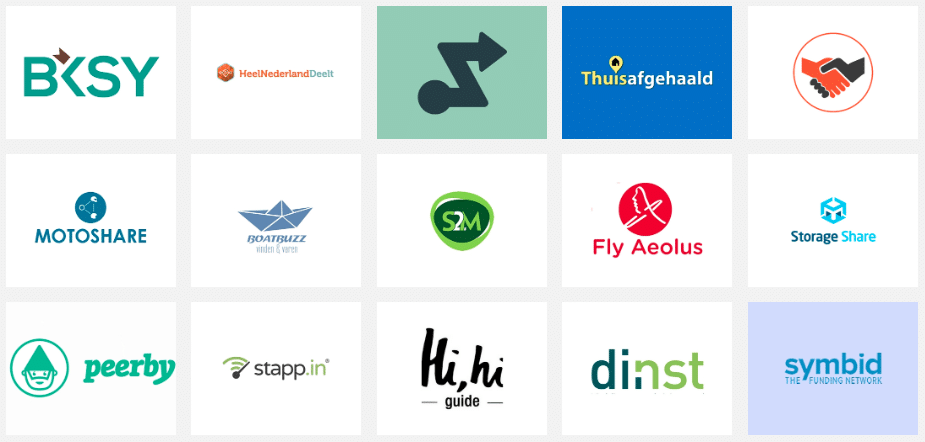 Sharing economy services in the Netherlands
Sharing economy services in the NetherlandsIn Belgium too, a country that used to see its neighbour to the North as a model to follow, things have changed. ‘Belgian legislative efforts, especially in tax matters, should not be underestimated’, confirms Martijn Arets. With its 2016 programme act, the country was a European pioneer in terms of the taxation of services from the sharing economy and the distinction between professional and non-professional providers. Again, the Belgians are part of a more liberal tradition than France, which with its Law for a Digital Republic, has shown itself to be much stricter in several sectors.
‘The sharing economy is still too often considered good or bad’, summarises Martijn Arets. ‘So, it’s just about finding the best possible model. A government must regulate, but not to the point of preventing innovation. We need an autonomous economic model, which does not only work with volunteers and grants. Because people who do real peer-to-peer, and who are really socially involved, remain a relatively small group. As soon as your initiative begins to develop, you see that users come less out of idealism than for price and comfort.’
And the Dutch make the comparison with the consumption of meat: ‘Consumers have known for a long time that the animals that end up on their plates do not lead very happy lives. However, they continued to eat meat as if nothing had happened. They only started to change their habits since meat substitutes were available everywhere. With the sharing economy it is the same.’



